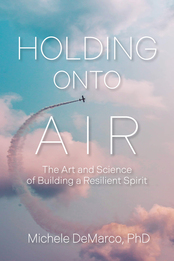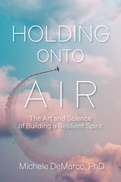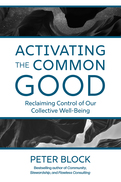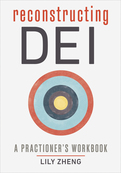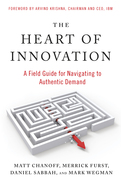
CHAPTER ONE
WHEN THE
UNIMAGINABLE STRIKES
I was thirty-three years old when my greatest fear became a reality, and everything I knew, everything I trusted, both in myself and life, came crashing down around me.
Warning: Descriptive detail of medical trauma.
To: Michele’s Family and Friends
From: Bill
Date: Tuesday, July 01, 2008, 1:05 AM
Subject: HEART ATTACK!
Dear Everyone,
Thanks for your nice phone calls and messages. I’m home now from Mass General Hospital but beat tired and going to bed.
Here are some of the details . . . as few as they are.
It turns out that the pain Michele was having in her chest and back these last few days was a heart attack—for real, no foolin’ around. And a pretty bad one at that, as doctors told us. And not the kind they had originally thought—which makes sense given her otherwise good health and that she has no risk factors or family history. What caused hers is apparently really rare.
More on that later. The residents were all trying furiously to find something in the medical case literature about the condition. I guess there isn’t much—not many people have ever seen it. For a while everyone looked really concerned. I know I am. But she made it through the surgery and is now awake and resting in the CCU. Still, we have no assurances or guarantees.
They’ve got cardiologists and geneticists and a slew of other medical professionals testing her for everything under the sun. They’re desperately trying to figure out why this happened, but so far, they’ve come up dry. I guess time will tell—or maybe it won’t. The doctors all are scratching their heads.
They’re cautiously optimistic that with medication and rehab, eventually, she’ll be back to her old self, but as she said to me tonight, “I’m not sure who that is anymore.”
And therein lies the issue . . .

This was the email that my then husband, Bill, wrote to close family and friends nearly twenty-four hours after I’d almost lost my life. I look at it now all these years later and still wonder, How was this even possible? It’s the kind of thing you see on television, not the kind of thing you live.
The irony is that I’d spent the entirety of my life intentionally ignoring death. Funerals, no. Horror movies, definitely not. Thoughts of heaven or hell, wasn’t going there. For a few years, when I was young, even “Breaking News” sent me fleeing from the television to my private bunker beneath the stairs, where a Strawberry Shortcake sleeping bag, a few favorite books, some snacks, and a flashlight could delude me into thinking that all would be okay—always.
But then I woke up, quite literally, on the last day of June 2008, feeling as though an elephant was standing on my chest and that I’d been slammed in the back by an assailant with a pipe. And I continued to “stay awake” after an aborted trip to the ER, having convinced myself that the symptoms were all but gone, only to return three days later, blurry eyed and barely able to breathe. And I thought I’d never sleep again after six hours of blood draws, X-rays, CT scans, and MRIs, and an ambulance with me in it, threading the needle through stopped traffic and blowing through red lights at top speed. But when all manner of medical professionals shrugged their shoulders and furrowed their brows, consulting textbooks and colleagues around the globe via phone, convinced for some time that I must be a cocaine addict (despite all evidence to the contrary) because who else at my age and with an otherwise healthy body and healthy heart would be circling the drain with a heart attack, I knew I could never go back to the dream that had been my life.
Something was lost. Something indeterminate had awoken. And something in me had changed forever.

I remember that first night in Mass General Hospital, lying on my back in the CCU, dim, cold light surveilling me from overhead, wires stuck all over my body feeding information, staccato-like, to the monitors beside me. I was supposed to have long been in dreamland, but in the hospital, where you go to rest, nobody sleeps. They wake you too often for that. Every hour a new face would appear—some with paper cups and pills, others with a multitude of questions and a pen. At one point, a group of people clad in white came in and flanked my bed, and the tallest among them began barking out orders as each one poked and prodded me.
I remember the doctor saying the words “heart attack,” after he’d just said, “you’re having.” I actually spun my head around to see who the poor soul was getting the bad news. But I was that soul. And the news didn’t stop there. I’d had a dissection in a coronary artery for no apparent reason, commonly referred to as SCAD. Then, a week later, I had another one—a worse one that made everyone’s face turn increasingly grave. Two heart attacks in one week, and still no one knew why.
I remember lying on the OR table surrounded by a blazing white light and people all in green, with a television monitor suspended over my head and a navy paper screen in front of my face. And then, at one point, hearing lots of commotion and someone leaping up on top of me after another yelled, “We’re losing her!”
I remember waiting to be discharged after heart attack number two a week later, having just taken a shower for the first time in a week, wondering what could be taking this process so damn long. And then a newly familiar face appeared in the doorway, and its owner smiled, as he walked in and sat down in the chair across from my bed. Then his eyes bore into mine, as he said the words I never wanted to hear: “You should not get pregnant because carrying and birthing a child will likely kill you.”
I remember arriving home that afternoon with everything just as I’d left it, yet none of it seemed the same. I thought, I’m living someone else’s life—certainly this couldn’t be mine. Only days before my life had been full of health, hope, and possibility. Now, it was filled with a sense of emptiness and vulnerability I’d never known.
I remember one evening wiping tears from my eyes, as I sat on the sofa in my sunroom surrounded by pillows and nothing sharp. My doctor had just called to relay the bad news that my INR (International Normalized Ratio—a measurement used to determine the effects of anticoagulants on the body’s clotting system) was off the charts—again. In other words, the blood thinners I was taking to “maybe” prevent a third attack had, for reasons they also couldn’t determine, turned my blood into the consistency of water—which meant that if I cut myself, I could bleed out and die. As I listened in the distance to Bill scraping the knife that I was forbidden to use across the plate where my dinner lay, I saw Rory, my Maine Coon kitty, appear from behind the chair and promenade, with enviable confidence, toward the sliding glass door across the room. Then she flopped in the warmth of the afternoon’s glow—as if the world hadn’t just imploded and all was still okay.
And that’s when I realized I was no longer like her—an innocent house cat with her tail raised high, swaggering naively in the sun, but rather a fearfully feral being, hiding alone and uncertain in the shadows of life’s dark realities.

My grandmother used to say, “The things you worry about most rarely happen.” Whether that’s true or not, things do happen— painful things, unimaginable things, things that make you call into question beliefs you’ve always held dear and values that have grounded and guided you, things that leave you with a hole in your heart, aching for what was, despairing for what is, and anxious about what will be, and who you will be—now.
If you’re reading this book, perhaps you, or someone you know, have experienced this kind of thing. And if you are, I can only say, you’re not alone. Although it may sound cliché, it’s also the truth. Suffering and loss, challenge and crises are unavoidable parts of the human condition. None of us can avoid heartache. None of us can hold onto our carefree, childlike innocence forever. Life simply doesn’t work that way. Therefore, the very real experience of lost innocence is universal—it happens to each of us, and often when we least expect it. It happens when someone lets us down or betrays us, or when we betray our own conscience or moral compass. It happens when a meaningful belief is called into question or when our certainty is challenged. It happens when we lose a loved one, either to death or because a meaningful relationship has ended. It happens when we are given an unwelcome diagnosis, or when we lose our job, or when our children are heading in a direction that concerns us. It happens anytime some distressing or traumatic event occurs in either our individual or collective life. And it happens in our own private anxieties when we encounter the core mysteries of existence. Simply speaking, lost innocence happens just from being human and from being alive. In fact, it’s the price we pay for life.
But here’s another truth: We don’t survive despite challenge or loss; we flourish because of them. We don’t build resilience by trying to “get back” or “go back” to what was, nor by simply “thinking happy thoughts” for now. We do it by honoring and integrating all our experience—past, present, and future—into the fullness of life and into the fullness of our being. It’s true: losing something meaningful, such as our innocence, may be painful and dislocating. It may leave us restless and confused. It may paralyze our good sense and our ability to move forward. It may even darken our spirit— for a time. But as I have learned, through both bitter and wonderful experience, it is also the starting point for an empowered and well-lived life. In fact, it can be our greatest existential (or human) “return on investment”—that is, if we allow it to be.

I admit that in the weeks and months after my heart attacks my spirit wasn’t well. First there was surgery and recovery and all manner of medication (one of which turned me into a walking bruise), skipped and erratic heartbeats, the occasional stabbing pains in my chest, a racing and sometimes pounding heart, and an irksome “tugging” in my upper left arm. Add to this ongoing fatigue, sleeplessness, lightheadedness, and occasional short-lived anxiety and the lack of available information on my condition, the uncertainty as to whether it would happen again, and the news of no getting pregnant even though that had been the plan (sigh) . . . I truly didn’t know which way was up. I remember ambling around as if in a fog, mired in confusion, occasionally paralyzed by fear, lacking confidence and a compass to show me the way forward.
And I was angry—not necessarily at life or God or fate for “allowing” this to happen. Rather, at myself, because I shouldn’t have felt this way—or so I thought. I’d spent the last decade of my life immersed in the world of “spirit wellness” and resilience. I was the last person who should have been feeling this way.

Sometime in the early days of our new millennium, I decided to go back to school to study theology. My announcement shocked everyone, including me. I was the child who at twelve years old pitched a fit outside the front door of my religious education classroom demanding to be allowed to drop out of the program that I found to be utterly uninspiring. As a young adult, religion was not a driving influence in my life. But the existential questions that the broad tent of religion and spirituality speak to, and the fundamental human desires that all the great traditions help people to satisfy, each in their own way, have always mattered to me; in fact, they fascinated me from the time I was a young.
I can’t pinpoint the moment when I realized what the strong appeal was for me to study theology—so much for having any big epiphany—but sometime between no degrees and three degrees later I came to understand: nowhere does the “funk of living” (to quote the philosopher Cornel West)—the here-and-now, harsh realities of humanity’s struggle to live in a world that so easily toggles between tragedy and comedy—become as apparent as it does in the study of religion. Nowhere seems to capture in such raw and compelling narrative our collective desire for hope and healing in the midst of pain and suffering like the various sacred scriptures or the ways in which countless scholars and everyday people grapple with them. Nowhere can the presence of life walk alongside the certainty of death with such profundity as it does in the beliefs and principles, rituals and practices, and identity and community of the world’s wisdom traditions.
When you study religion, you are exploring nothing less than the human condition in all its perfect imperfection. Somehow this “funk” is where I found my home. And developing strategies that help people to not only live with that funk but also embrace it, and then because of it, build what I like to think of as a “sustainable spirit,” became my life’s project.
But then I personally felt the “funk” in the form of two rare heart attacks that left everyone guessing. And so, I was forced to look at and engage this so-called life project in an entirely new way.

Holding onto Air is the result of that effort. Leveraging more than a decade of experience, research, and practice, the following pages offer a fresh approach to dealing with adversity and building that “sustainable spirit”—one that will help you to endure and evolve in the wake of any of life’s challenges. More than a simple self-help “how-to,” I also offer my own story—both its struggles and successes, as they are—of putting that framework into practice. It wasn’t always easy, I’ll be honest. In fact, the process has been a good reminder that resilience isn’t an end point to achieve but rather something to be lived intentionally, every day. Even now, all these years later, I’m still working to live it.

How do you carry on when happiness, hope, and harmony seem to be taken away? How do you endure when life pushes you to the limits of “you”? How do you move from having a hole in your heart to being whole in spirit? These are life’s greatest challenges—and its greatest rewards.
So, I invite you on a journey. Heartache and loss leave you standing at a fork in the road. Together, we’ll explore two paths ahead: one that undermines your ability to heal and move forward because it leads you to wallow in what was, be dispirited about what is, and ignore what still can be, and another that leverages your innate capacity for resilience and helps you to hold onto that life-giving air that moves energy through your body, calms your mind, and allows your spirit to soar. In doing so, it will help you to, as a poem I once wrote said, “Transform to triumph . . . renew, not retreat. Rise, from out of chaos and loss comes life.”
The following pages will show you how.
But before we do . . .
A word about “spirit” because I know it can sometimes be contentious.
Like an idea, an opinion, a personality, or a dream, everyone has spirit. Simply speaking, spirit is the animating energy at the core of our lives. Its expression can be, but does not have to be, dependent on an explicit belief system. So, whether you consider yourself to be a devout believer, a seeker, an atheist, or something else; whether you find “it” in plazas or sanctuaries, a mosque, or a temple, or in communion or in solitude; whether you believe it is part of you or you are part of it; and wherever and however you choose to express it, spirit is part of who you are, and it plays an essential role in whether you are well and able to flourish.
There is much more to say on the subject of spirit, but that’s for a different book. Why it’s important for this book is for one simple reason: because unlike the body and mind, spirit doesn’t diminish with time. It only deepens, grows, and, if allowed to, flourishes in all circumstances, including, and especially, tough times.







